10 Best Eurovision Winners of All-Time

Looking for the best Eurovision winners ever? You’ve come to the right place, as I’ve compiled a list of my favorite 10 champions in the event’s history.
Arguably the greatest singing competition in the world, Eurovision is something you can profit from at the top entertainment betting sites, and also something to marvel at.
I’ll be ranking the best Eurovision winners in the contest’s history this time. So, here are my favorite Eurovision winners, ranked from 1 to 10.
1. ABBA – Waterloo
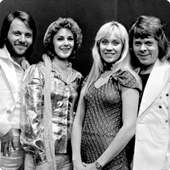
- Year: 1974
- Country: Sweden
- Language: English
ABBA is one of the most popular groups in pop music history, topping the charts all over the world back in the 1970s.
Dancing Queen, Mamma Mia, Take a Chance on Me – these songs remain among the most popular radio tunes worldwide, some 40 years after their release.
Still, before those hits, there was Waterloo. In fact, this is the song that put ABBA on the map. Written in 1973, the song was Sweden’s entry in the 1974 Eurovision Song Contest.
The Eurovision victory turned ABBA into a sensation and awoke interest in the competition among people from all parts of the globe. In the US, for instance, the single reached the Top 10, selling almost six million copies.
The song stands the test of time, the evidence being that in 2021, it was voted the best song in the history of the Eurovision, finishing first above Euphoria by another Swedish artist, Loreen.
2. Loreen – Euphoria
- Year: 2012
- Country: Sweden
- Language: English
Seventeen No.1s, platinum status in eight different countries, 200 million combined views on YouTube – these are just some reasons why Euphoria deserves its place in the list of best Eurovision winners ever.
What makes Loreen’s song so great? It’s a Europop banger that radio DJs and partygoers equally love. The song seems to tick all the boxes that make up a superhit.
3. Celine Dion – Ne Partez Pas Sans Moi
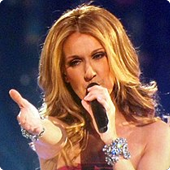
- Year: 1988
- Country: Switzerland
- Language: French
She might be Canadian, but at the 1988 Eurovision, Celine Dion represented Switzerland with the song Ne Partez Pas Sans Moi.
It won the competition with just one point more than the UK’s entry (Go by Scott Fitzgerald). However, its popularity skyrocketed after the contest, especially in French-speaking countries like Belgium, where it topped the charts for three straight weeks.
Over the next couple of years, she became a global superstar, especially after doing James Cameron’s 1997 blockbuster Titanic soundtrack.
4. Lordi – Hard Rock Hallelujah
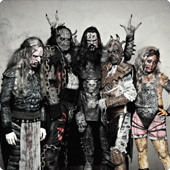
- Year: 2006
- Country: Finland
- Language: English
When you think of the Eurovision, your mind probably goes to catchy tunes like Waterloo or power ballads like Celine Dion’s entry. But did you know that there’s a hard rock song among the past Eurovision winners?
Yes, there is! The song in question is Hard Rock Hallelujah, performed by costume-wearing pyrotechnic-loving Finnish heavy metal band Lordi.
5. Conchita Wurst – Rise Like a Phoenix
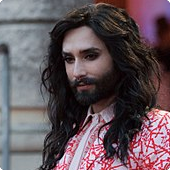
- Year: 2014
- Country: Austria
- Language: English
Conchita Wurst might be the most recognizable Eurovision winner of the 21st century – an Austrian drag queen with a long thick beard.
Conchita’s last name Wurst means sausage in German, but her goal in the Eurovision 2014 wasn’t to cause controversy but to present her song on the big stage.
According to some prominent music critics (most notably, Max Stern), Rise Like a Phoenix is one of the top Eurovision winners of the century. The song also went to do great in the charts around Europe, getting to the #1 spot in Conchita’s home country of Austria.
6. Lena Meyer-Landrut – Satellite

- Year: 2010
- Country: Germany
- Language: English
In 2010, Germany won its first Eurovision Song Contest since the fall of the Berlin wall.
The artist who won it for Germany is Lena Meyer-Landrut, whose catchy pop tune won the hearts of the continent.
After winning the Eurovision, Lena’s song also did great commercially, becoming Germany’s fastest-selling digital release in history. The song also topped the charts in five other European countries.
7. Johnny Logan – Hold Me Now
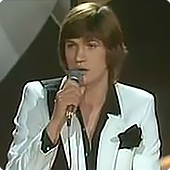
- Year: 1987
- Country: Ireland
- Language: English
Johnny Logan is the only person who has won Eurovision more than once. He won it two times as a performer and two times as a songwriter.
His 1987 song Hold Me Now is generally considered his best.
Apart from doing great in the years after the initial release, the song experienced a revival in the early 2000s after being covered by several artists, most notably Jamaican reggae singer Tanya Stephens. Further, over in Ireland, the song was used in McDonald’s advertising campaign in 2007.
8. Måneskin – Zitti e Buoni
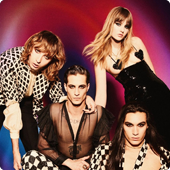
- Year: 2021
- Country: Italy
- Language: Italian
After winning the 2021 San Remo, Maneskin’s Zitti e Buoni received the opportunity to represent Italy at the Eurovision Song Contest.
It’s needless to say that the song did great, but what happened after winning the contest is even more impressive.
After winning the 2021 Eurovision, the song broke the record for the most-streamed Italian song in one day on Spotify. It also reached the UK Top 20, becoming the first song to do it in almost three decades.
9. Toto Cutugno – Insieme: 1992
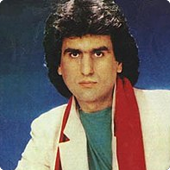
- Year: 1990
- Country: Italy
- Language: Italian
Before Maneskin, there was Toto Cutugno. His song Insieme: 1992 won the Eurovision Song Contest in 1990, becoming only the second song sung entirely in Italian to do so.
When he entered the competition, he was already a superstar in Italy thanks to his 1983 hit L’Italiano. His Eurovision-winning song remains in the shadow of L’Italiano, but back in the day, it was a huge success.
The song reached the Top 10 in five European countries, becoming a sort of unofficial hymn of the European Union. This is because its title Insieme: 1992 (meaning “Together: 1992”), refers to the year when the EU was supposed to begin operation.
10. Ruslana – Wild Dances
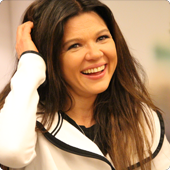
- Year: 2004
- Country: Ukraine
- Language: English/Ukrainian
In 2004, Ruslana broke the Eurovision record for most points won in a contest after receiving 280 points or 66.7% of the vote.
What makes Wild Dances memorable isn’t just its fast-paced rhythm and Ruslana’s energetic performance. Wearing a leather outfit, Ruslana was described as Xena Warrior Princess on a night out by Independent.
Other Noteworthy Eurovision Winners
- Anne-Marie David – Tu te Reconnaitras
- Alexander Rybak – Fairytale
- Salvador Sobral – Amar Pelos Dois
- Jamala – 1944
- Katrina and the Waves – Love Shine a Light
- Bucks Fizz – Making Your Mind Up
- Carola – Fangad av en Stormvind
- Lulu – Boom Bang-a-Bang
- Mans Zelmerlow – Heroes
- Marija Serifovic – Molitva
One may argue that each of the songs listed above deserves to be among the ten best Eurovision song contest winners. After all, the mere fact that they won the contest means that each of those is a good song.
That said, some do stand out from the crowd. For instance, Tu te Reconnaitras by Anne-Marie David, the song that won the 1973 Eurovision, remains the record holder for the highest percentage of points won, with 80.63% of the vote going in its favor.
Then in 2016, the contest adopted a new scoring system, boosting the number of available points. A year later, Amar Pelos Dois by Salvador Sobral broke the Guinness World Record for most points won at the Eurovision.
The ballad about a post-breakup blues amassed 758 points, over 200 points more than the previous record-holder, Jamala’s 1944.
Honorable Mention
- Domenico Modugno – Nel Blu Dipinto di Blu
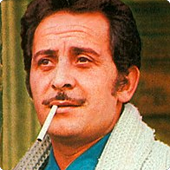
This isn’t one of the Eurovision past winners, however, I cannot leave it out. Why? Because this is one of the most iconic Eurovision songs ever.
It finished third in the 1958 Eurovision, which was the second installment in the history of the contest. However, after the contest, the song literally exploded.
Going under the new title of Volare, Domenico Modugno’s piece went on to become the Billboard Year-End number one, winning two Grammys along the way.
The song’s popularity didn’t diminish over the years. In fact, just the opposite happened after American comedian Dean Martin covered it, adding English lyrics into the mix.
Then thirty years later, Gypsy Kings did the same, switching the lyrics to Spanish and pushing a rumba vibe into the song.
Who is the Best Eurovision Winner?
There you have it, my Eurovision winner rankings, with the legendary ABBA taking the cake. Those are my picks based on critics’ consensus, chart performances, and YouTube views and based on my own preferences. If you disagree, feel free to hit me up with your suggestions in the comments section.
Am I wrong to put ABBA in the top spot? If so, who has a greater argument to own the title of the best Eurovision Song Contest winner in history?
It’s an interesting conversation, to be sure. What makes it even more compelling, however, is that it’s something we can discuss again with a fresh perspective with each passing year.
Heck, it’s even something we can bet on and win money from!
If you believe there’s a song from this year’s contest that could end up in the list of best Eurovision winners in the future, maybe it wouldn’t be crazy to visit our Eurovision Song Contest betting guide.
 75%
75% 80%
80%
